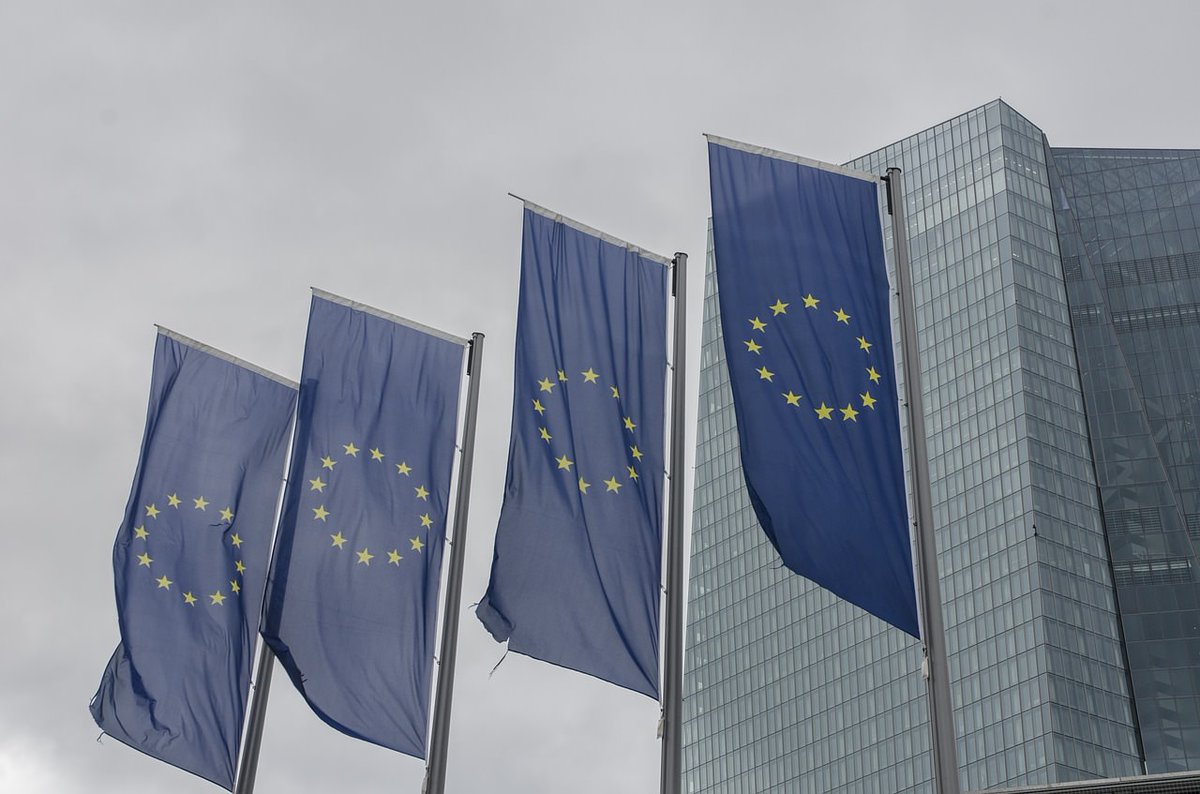
The Council of the European Union and its Parliament have reached a political agreement on the electricity market reform, which includes a transitional period until 2028, during which Poland will be able to support its coal-fired power plants.
EU flags. Picture by pixabay.com
The derogation in the agreement on the reform of the European Union electricity market design extends the permission for Poland (as well as Germany and other EU members) to apply the capacity market as a support mechanism until the end of 2028. This is the result of the actions of Polish members of the European Parliament, including Jerzy Buzek.
"The compromise reached between the European Parliament and the Council is important for two reasons," says Ryszard Pawlik, Jerzy Buzek's advisor. "The first is the possibility of maintaining the capacity market support for coal-fired power plants until the end of 2028. This is good news for Poland's energy security and reliability of power supply. This is particularly important in the context of the energy crisis, which, after all, we – as the European Union – are unfortunately still experiencing. That is also why we in the EP have been pushing hard for months for the possibility of extending this derogation," he said.
"The second reason is crucial, as the condition for extending this derogation is to present a clear plan of how and what we intend to replace the current coal units in the capacity market with once the derogation has expired, i.e. in 2029 at the latest. The idea is to use these extra few years to really engage in a thorough and actual energy transition, which will include a surge increase in RES availability together with the expansion of the grid and storage capacity. This is a great challenge, of which the new government is certainly deeply aware," professor Buzek's advisor told BiznesAlert.pl.
The reform introduces contracts for difference as the main tool to support new energy projects. The Council of the European Union will also be able to declare an energy crisis in the event of a sudden increase in wholesale energy prices. The agreement is provisional and has yet to be approved by these EU bodies.
Council of the European Union / Wojciech Jakóbik
The Council of the European Union and its Parliament have reached a political agreement on the electricity market reform, which includes a transitional period until 2028, during which Poland will be able to support its coal-fired power plants.
The derogation in the agreement on the reform of the European Union electricity market design extends the permission for Poland (as well as Germany and other EU members) to apply the capacity market as a support mechanism until the end of 2028. This was possible thanks to the engagement of Polish members of the European Parliament, including Jerzy Buzek.
„The compromise reached between the European Parliament and the Council is important for two reasons,” says Ryszard Pawlik, Jerzy Buzek’s advisor. „The first is the possibility of maintaining the capacity market support for coal-fired power plants until the end of 2028. This is good news for Poland’s energy security and reliability of power supply. This is particularly important in the context of the energy crisis, which, after all, we – as the European Union – are unfortunately still experiencing. That is also why in the EP we have been pushing hard for months for the possibility of extending this derogation,” he said.
„The second reason is crucial, as the condition for extending this derogation is to present a clear plan on how and what we intend to replace the current coal units in the capacity market with once the derogation has expired, i.e. in 2029 at the latest. The idea is to use these extra few years to really engage in a thorough and actual energy transition, which will include a surge increase in RES availability together with the expansion of the grid and storage capacity. This is a great challenge, of which the new government is certainly deeply aware,” professor Buzek’s advisor told BiznesAlert.pl.
The reform introduces contracts for difference as the main tool to support new energy projects. The Council of the European Union will also be able to declare an energy crisis in the event of a sudden increase in wholesale energy prices. The agreement is provisional and has yet to be approved by these EU bodies.
Council of the European Union / Wojciech Jakóbik









